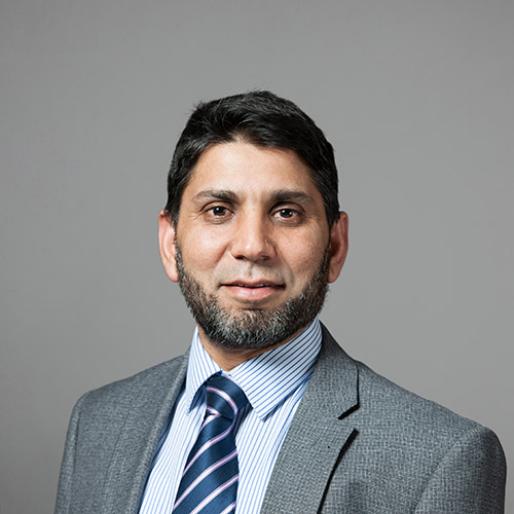The big picture: using wildflower strips for pest control
More than two dozen visionary businesses and academics that want to do their bit for the planet will be given the opportunity today, as they are brought together in a hackathon aimed at fixing our food system.
The one-day brainstorming event is the first step in what is hoped will eventually be the creation of several new solutions utilising scientific and technical expertise to address food sustainability challenges such as battling climate change, tackling waste, reducing the impact of farming on the environment and enabling healthier eating.
Organised by the multi-million-pound Environmental Futures & Big Data Impact Lab, the Sustainable Food Systems Challenge event near Okehampton draws on the world-leading expertise found in the region, which includes the University of Exeter, Exeter City Futures, the Met Office, Plymouth College of Art, Plymouth Marine Laboratory, the University of Plymouth, and the event’s host, Rothamsted Research.
Dr Khalid Mahmood, Innovation and Partnerships Manager at Rothamsted Research said: “The reason for today is to bring together inspired individuals with great ideas and who are looking for game changing technologies, with experts from various fields who can the provide the in-depth understanding of the problems, and the creative expertise to help develop new solutions.
“Maintaining a sustainable food system under threat of climate change whilst meeting the nutritional needs of society provide perhaps our greatest challenges. We believe the solutions can potentially come from anywhere within the supply chain and take any form – be it an innovation, a data platform, or just a new way of doing things.
“This is an event for people with a passion for problem solving and a broad set of skills and experience to come together and collaborate.”
Previous Challenge events have been highly successful, inspiring different business ideas that are currently focussed around water, food waste, plastic, greenhouse gas emissions, and led by various Impact Lab partners.
Head of Rothamsted’s North Wyke facility, Professor Michael Lee said: “Rothamsted Research has world class expertise in understanding the nutrients flow within ecosystems, such as those going from the soil, via grass, to become the end products of meat and milk. Our ultimate goal here is to address the nutritional requirement for a healthy diet and a healthy planet.”
The Environmental Futures & Big Data Impact Lab is a £6.4m partnership, part-funded by the European Regional Development Fund.
It offers free support to businesses looking to capitalise on opportunities and create new products and services using environmentally-based solutions, or by exploiting the recent explosion in large datasets.
Impact Lab Director Robert Kathro said: “Our objective is to boost inward investment and productivity-led growth by positioning Devon as a national and international centre for environmental and big data analytics.”

Head Agritech MENA
Rothamsted Research is the longest-running agricultural research institute in the world. We work from gene to field with a proud history of ground-breaking
discoveries in areas as diverse as crop management, statistical interpretation and soil health. Our founders, in 1843, were the pioneers of modern
agriculture, and we are known for our imaginative science and our collaborative approach to developing innovative farm practice.
Through independent research, we make significant contributions to improving agri-food systems in the UK and internationally, with
economic impact estimated to exceed £3 bn in annual contribution to the UK economy. Our strength lies in our systems approach, which combines strategic research,
interdisciplinary teams and multiple partnerships.
Rothamsted is home to three unique National Bioscience Research Infrastructures which are open to researchers from all over the world:
The Long-Term Experiments,
Rothamsted Insect Survey and the
North Wyke Farm Platform.
We are strategically funded by the Biotechnology and Biological Sciences Research Council (BBSRC), with additional support from other national and
international funding streams, and from industry. We are also supported by the Lawes Agricultural Trust (LAT).
The Biotechnology and Biological Sciences Research Council is part of UK Research and Innovation, a non-departmental public body funded by a grant-in-aid
from the UK government.
BBSRC invests to push back the frontiers of biology and deliver a healthy, prosperous and sustainable future. Through our investments, we build and support a vibrant,
dynamic and inclusive community which delivers ground-breaking discoveries and develops bio-based solutions that contribute to tackling global challenges,
such as sustainable food production, climate change, and healthy ageing.
As part of UK Research and Innovation (UKRI), we not only play a pivotal role in fostering connections that enable the UK’s world-class research and innovation system
to flourish – we also have a responsibility to enable the creation of a research culture that is diverse, resilient, and engaged.
BBSRC proudly forges interdisciplinary collaborations where excellent bioscience has a fundamental role. We pioneer approaches that enhance the equality, diversity,
and inclusion of talent by investing in people, infrastructure, technologies, and partnerships on a global scale.
The Lawes Agricultural Trust, established in 1889 by Sir John Bennet Lawes, supports Rothamsted Research’s national and international agricultural science through the provision of land, facilities and funding. LAT, a charitable trust, owns the estates at Harpenden and Broom's Barn, including many of the buildings used by Rothamsted Research. LAT provides an annual research grant to the Director, accommodation for nearly 200 people, and support for fellowships for young scientists from developing countries. LAT also makes capital grants to help modernise facilities at Rothamsted, or invests in new buildings.